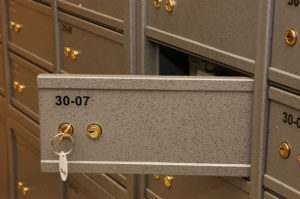How to Avoid Family Fighting in My Estate?

It’s not uncommon for parents to modify their first estate plans when their children become adults. At that point, many parents’ estate plans are designed to help efficiently transfer assets to the surviving spouse and ultimately to the adult children. However, at this stage clients are frequently eager to avoid family fighting in estates. However, like all plans we make, sometimes things don’t go the way we want them to.
Forbes’ recent article entitled “Three Steps To Estate Planning Without The Family Friction” explains that there are a number of reasons for sibling animosity in the inheritance process. The article says that frequently there are issues that stem from a lack of communication between siblings, which causes doubts or suspicion as to how things are being done. In addition, siblings may not agree if and how property should be sold and maintained. This is exacerbated with blended families, so see here for ideas on estate planning post divorce. https://galligan-law.com/estate-planning-after-divorce/
To help avoid these problems, consider using this three-step process for estate planning. Not everyone will be comfortable with all three steps, but these processes can help prevent family in-fighting in your estate.
Work with an experienced estate planning attorney. Hire an estate attorney who has many years of working in this practice area. This will mean that they’ve seen—and more importantly—resolved every type of family conflict and problem that can arise in the estate planning process. Such an attorney can anticipate such conflicts and plan for them in the estate planning documents. That’s the know-how that you’re really paying for, in addition to his or her legal expertise in wills and trusts.
Create a financial overview. A financial overview is another part of the process to avoid family fighting in the estate. This will help your beneficiaries see what you own and avoid suspicions between family. A financial overview can simplify the inheritance process, and it can help to serve as the foundation for you and your executor to frankly communicate with future beneficiaries to reduce any lingering doubts or questions that they may have, when they’re not in the loop. Your inventory should at least include the following items:
- A list of all assets, liabilities and insurance policies you have and their beneficiaries
- Contact information for all financial, insurance and legal professionals with whom you work; and
- Access information for any websites your beneficiaries may need for your online accounts.
As an aside, it is a really good idea to have this information gathered for your executor just to make their job easier, regardless of the potential for conflict. You may also consider preparing a a legacy letter that discusses non-financial items for your children.
Hold a family meeting. Next, conduct a family meeting that includes the parents and the children who will be inheriting assets. Some topics for this meeting include:
- The basics of your estate intentions (and make SURE your current estate plan reflects this)
- Verify that a trusted person knows the location of your important estate documents
- State who your executor and other involved people will be and your rationale
- Make certain that all parties value communication and transparency during this process; and
- Discuss non-financial legacy items that are important for you to give to your children.
This three-step process can help keep your children’s relationships intact after you are gone. Hiring an experienced estate planning attorney, creating a clear financial overview and communicating what’s important to you are critical steps in helping to keep your family together.
Reference: Forbes (July 2, 2020) “Three Steps To Estate Planning Without The Family Friction”
